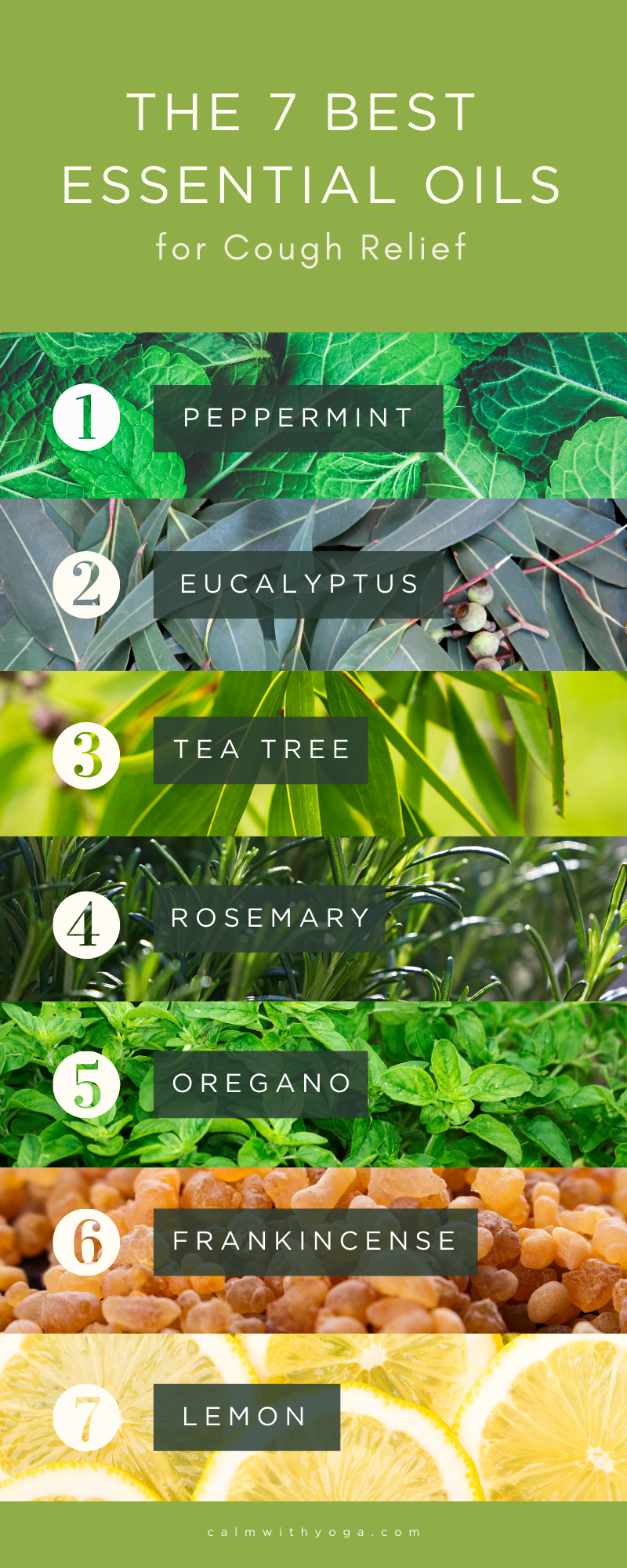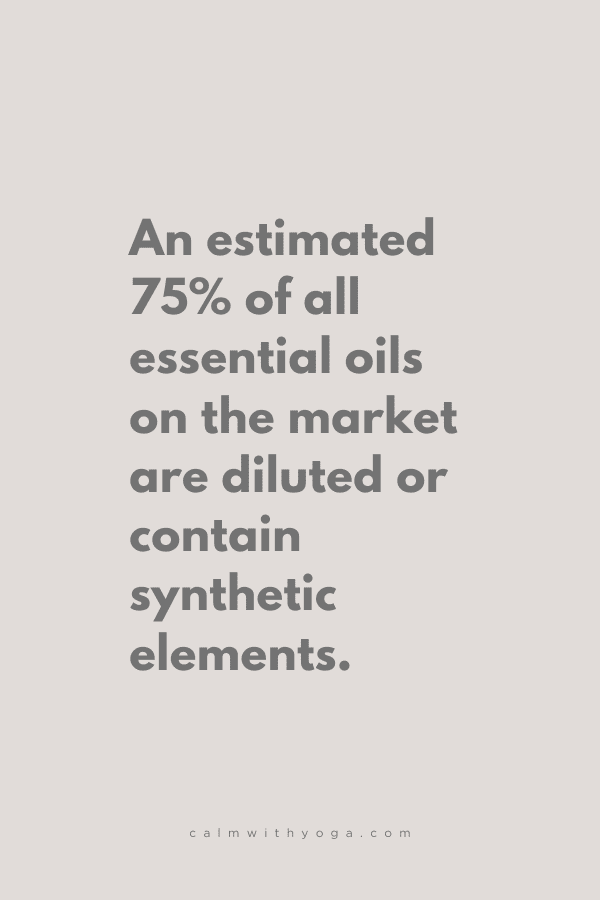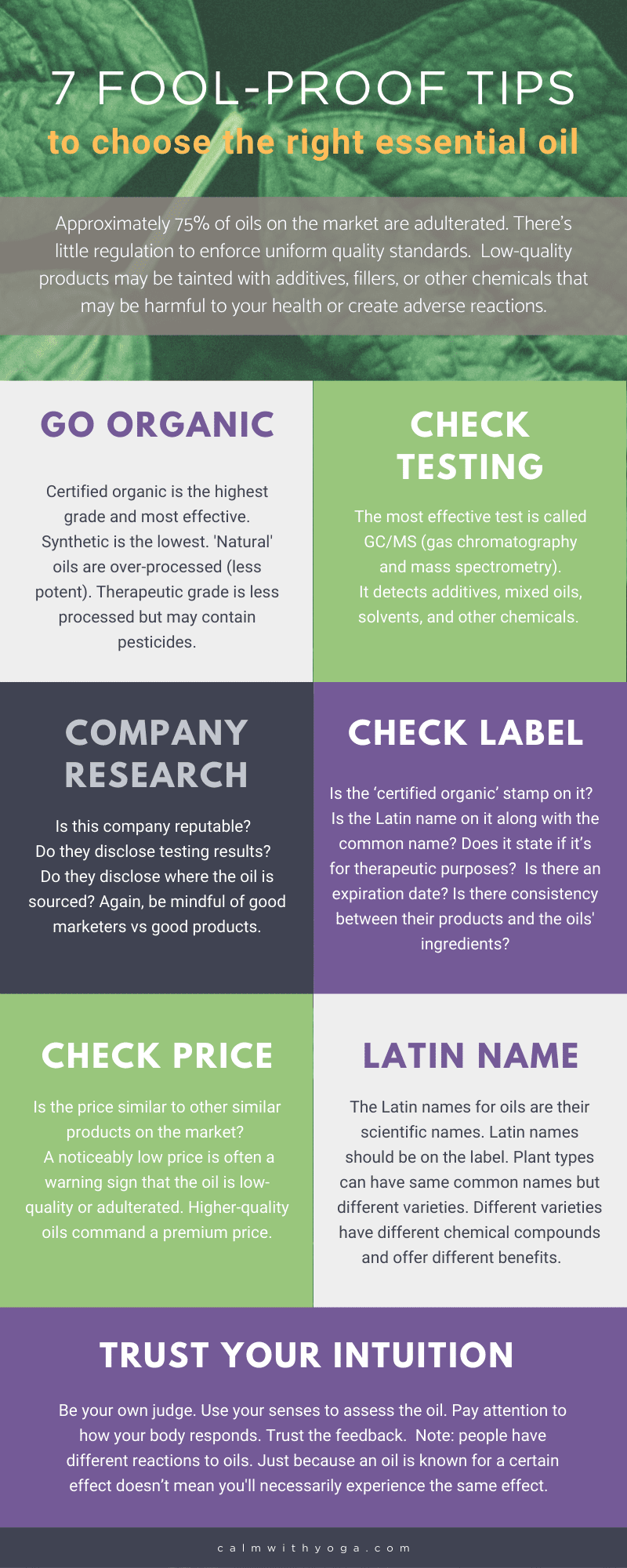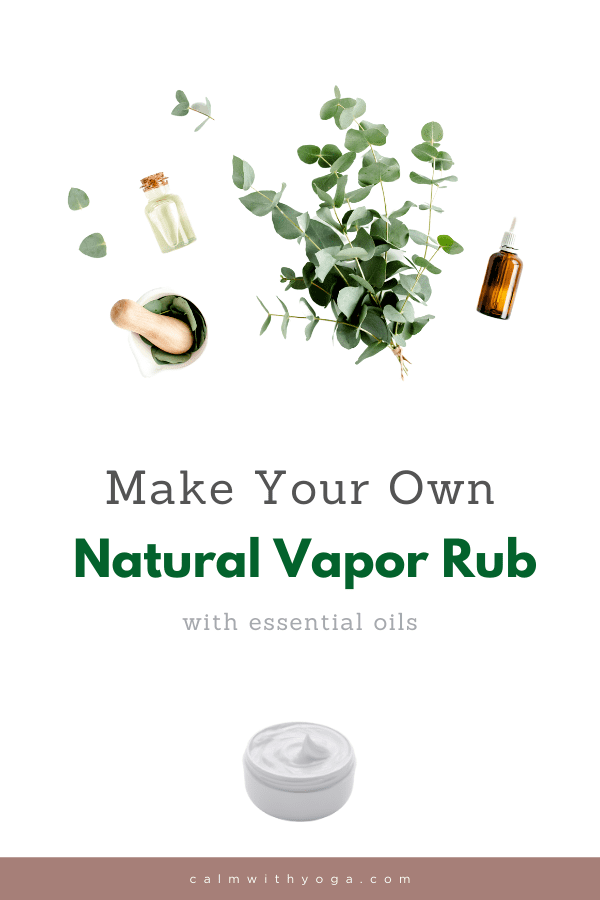Why People Are Turning To Essential Oils for Coughs
Stuffed, runny noses, achy bodies, and congestion.
Common cold symptoms can really disrupt your days so it’s no wonder many of us are willing to try anything to feel better.
But before you go reaching for prescription or over-the-counter (OTC) meds as a first response, you may want to consider a more natural way – essential oils.
Essential oils (EOs) are highly concentrated aromatic compounds extracted from tree or plant material such as bark, leaves, flowers, roots, resin, fruit, or nut.
They’re considered a form of herbal medicine and natural remedies, and their therapeutic application is often referred to as aromatherapy.
There’s an increased interest in EOs’ pharmacological properties as alternative therapies for respiratory conditions and infections.
Many EOs have been found effective at relieving cold symptoms and cough, without the potential adverse side effects of OTC meds.
Leigh Ann Mike, a faculty member at the University of Washington School of Pharmacy says:
“People think that because they can buy these remedies without a prescription, they’re safe. But that’s not always true.” (1)
Overuse of drugs like acetaminophen (paracetamol), ibuprofen, and OTC decongestants have been linked with liver damage, ulcers, kidney problems, and high blood pressure. (1)
How EOs Work To Relieve A Cough
Many EOs have specific therapeutic properties that can target respiratory issues and chest congestion while supporting the immune system.
If you’re turning to EOs for cough relief you’ll want to look for ones that are:
- Analgesic (pain relief) – this can relieve sore throat and achiness.
- Antibacterial properties – to prevent bacterial infections (especially respiratory infections)
- Anti-inflammatory – can soothe inflammation in the throat or respiratory system.
- Antitussive – Suppresses the cough reflex
- Decongestant – to reduce congestion/mucus in the upper respiratory tract.
- Expectorant – To loosen mucus in order to cough it out.
The 7 Best Essential Oils for Coughs
Peppermint oil (Mentha piperita)
- Analgesic
- Antibacterial
- Anti-inflammatory
- Antitussive
- Decongestant
- Expectorant
Its active compound, menthol, is a known cough suppressor. (2)
Menthol is what gives peppermint oil its cooling sensation that can help soothe soreness often associated with a persistent cough.
Peppermint oil also exhibited an antispasmodic effect (suppresses muscle contractions) in the throat area and bronchial muscles which may indicate cough suppression. (3)
Contraindications: children under 6 years old, high blood pressure, pregnant and breast-feeding women
Eucalyptus oil (Eucalyptus globulus, radiata)
- Analgesic
- Antibacterial
- Anti-inflammatory
- Antitussive
- Decongestant
- Expectorant
Cineole is the active therapeutic agent in eucalyptus essential oil and it’s a known antitussive. (2)
Like peppermint, it also has a cooling sensation that can soothe cough-associated soreness.
Its vapors open the sinus and nasal passages which can deepen breathing, especially in those experiencing sinusitis.
Contraindications: Those with high blood pressure, epilepsy, pregnant and breastfeeding women, children under 6 years old
Tea tree oil (Melaleuca alternifolia)
- Analgesic
- Antibacterial
- Anti-inflammatory
- Antitussive
- Decongestant
- Expectorant
Tea tree essential oil has been used by Australia’s Aboriginal population for hundreds of years.
Aborigines crushed tea tree leaves and inhaled them to treat colds and coughs.
Today, tea tree is a known potent antimicrobial agent that can protect against bacterial, viral, and fungal respiratory tract infections. (4)
Like eucalyptus, tea tree oil’s vapors open the sinus and nasal passages thereby reducing respiratory problems.
Contraindications: Toxic if ingested, may cause irritation (perform a patch test before)
Rosemary oil (Rosemarinus officinalis)
- Analgesic
- Antibacterial
- Anti-inflammatory
- Antitussive
- Decongestant
- Expectorant
Like eucalyptus, rosemary essential oil also contains cineole, which helps break down mucus.
A 2013 clinical trial found that cineole was an effective option in the treatment of acute bronchitis because it significantly reduced cough frequency after just four days. (5)
Contraindications: Pregnant women, epilepsy, high blood pressure, can be toxic if ingested.
Oregano oil (Origanum vulgare)
- Analgesic
- Antibacterial
- Anti-inflammatory
- Expectorant
Oregano oil contains a high amount of carvacrol, an active compound that offers potent healing properties and defense against infections.
A randomized trial investigating the effects of an EO blend containing oregano on the upper respiratory tract found immediate and significant improvement in symptoms such as sore throat, cough, and hoarseness. (6)
Contraindications: Pregnant and breast-feeding women, if you’re taking multiple medications.
Frankincense oil (Boswellia carterii)
- Analgesic
- Antibacterial
- Anti-inflammatory
- Antitussive
- Expectorant
Frankincense’s therapeutic uses include respiratory conditions, coughs, common cold, and bronchitis.
Its vapors open the nasal passages.
Frankincense can stimulate the immune system by fortifying immune cell activity, and one study found it to increase lymphocyte (white blood cell type) activity by 90%. (7)
Contraindications: none known
Lemon oil (Citrus limon)
- Antibacterial
- Anti-inflammatory
- Antitussive
- Decongestant
In aromatherapy, lemon essential oil is traditionally used to soothe sore throats, bronchial conditions, and laryngitis.
D-limonene, one of the active compounds in lemon oil, is a powerful antioxidant that can help with cough-related inflammation.
Contraindications: Non-distilled lemon oil is phototoxic – avoid direct exposure to sunlight at least 12 hours after applying topically, may cause skin irritation (perform a patch test)
Others that may also be beneficial:
- Lavender essential oil
- Cinnamon essential oil
- Geranium oil
- Sandalwood oil
- Nutmeg oil
- Cypress oil
- Bergamot oil
- Clove oil
Nutmeg, cypress, and bergamot oils contain a compound called camphene which research indicates is an expectorant and can reduce fluid in the respiratory system. (8)
The Pros & Cons of EOs for Coughs
The Pros:
- EOs are potent – a little goes a long way. For example, did you know that a pound of peppermint leaves make up one small 15 ml bottle? Just one drop offers multiple active compounds that influence your physiology in a matter of moments.
- High-quality EOs should be 100% natural, unfiltered, and organic – especially if you’re using them for medicinal or therapeutic purposes.
- If you use EOs mindfully and consume them with care and are aware of the contraindications, you’ll likely experience little to no side effects. (Unlike most OTC meds.)
- Think of EOs as your first line of defense and preventative health care that’s relatively affordable and accessible. And unlike pharmaceuticals, you can blend multiple oils to maximize or enhance their healing and soothing effects.
The Cons:
- EOs are potent – unnecessarily high concentrations or misuse can cause them to become irritants and may even make your cough and cold symptoms worse.
- Unfortunately, there are many adulterated EO products out in the market that feature misleading claims and labels. It’s estimated that more than 75% of all EO on the market are either diluted or contaminated with synthetic material. (9)
- Even though EOs can offer multiple health benefits they aren’t cure-alls. (If you’re dealing with a serious or persistent cough or your symptoms are getting worse consult with your physician or medical provider prior to using them.)
- Be mindful of the contraindications for each oil you use – many of them aren’t suitable for babies, young children, or pregnant and nursing women.
- Most of the research done on EO is based mostly on animal studies. Though results seem promising, more research is needed to explore EO benefits further in order to understand the mechanisms through which they provide cold and cough relief.
Using EOs With Other Natural Alternative Cough Treatments
Since EOs aren’t a cure-all, their benefits are most enhanced when they form part of a holistic and well-rounded approach to addressing cough, sore throat, and cold symptoms.
EOs alone probably won’t cure you of cough, especially if it’s persistent or if you’re still engaging in habits and patterns that cause further irritation, strain your immune system, and increase inflammation.
Things like smoking, drug use, drinking alcohol, poor sleep, unmanaged stress/anxiety, and consuming sugar, gluten, dairy, and processed foods can all make a cough worse.
There are multiple options in terms of home remedies, and the yogic way of dealing with a cough involves addressing multiple layers of the issue:
Physical
- Drinking lemon, honey, ginger, & hot water
- Eat like a yogi
- Salt and warm water gargle
- Bone broth
- High-quality probiotics
- Stay hydrated (2L of water daily)
- Bromelain (either as a supplement or by eating fresh pineapple)
- Marshmallow root
Energetic
Yogis believe that physical symptoms are the outward manifestation of energy flow issues.
In the yogic tradition, we have seven energetic centers (chakras) that run up and down the centerline of the body.
These centers are vortices for subtle energy and life force (aka prana/chi/vital energy) to travel through our body’s channels.
When vital energy flows freely these centers are open and active and we experience mental, emotional, and physical health and well-being.
We experience physical symptoms when there is a blockage or imbalance (under/overactivity) of a center.
Physical symptoms of an imbalance in the throat energy center include:
- Cough
- Sore throat (especially chronic)
- Laryngitis
- Throat inflammation
- Hoarseness
Here’s a guided meditation to help bring balance to and reinforce your throat energy center.
Mental/Emotional
Is it possible that there could be a mental/emotional link to your cough?
Psychosomatic illness refers to the way your emotions, thoughts, beliefs, and subconscious perceptions create a state of dis-ease in the body.
Your mind, emotions, and body are instruments and the way you align and attune them determines how well you play in life.
– Yogi Bhajan, yoga teacher & author
Author and founder of Hay House Publishing Louise Hay wrote an entire book connecting psychosomatic factors to different kinds of symptoms and health states.
In “Heal Your Body” she suggests that a cough may be connected to these thought patterns:
- A desire to bark at the world
- “See me! Listen to me!”
- Fear of taking in life fully
She offers the following affirmations and new belief patterns to help relieve the throat:
- I am noticed and appreciated in the most positive ways.
- I am loved.
- I am safe.
- I love my life.
How To Choose the Right High-Quality EO for Cough Relief
Non-organic, low-quality products may be tainted with additives, fillers, or other harmful chemicals that might worsen your cough and other symptoms.
It’s important to know how to choose the best quality EOs in order to reap their full medicinal and therapeutic benefits.
Here are 7 steps to follow:
1. Always choose certified organic and therapeutic grade
2. Check quality assurance via testing
3. Look into the company – are they reputable?
4. Look at the label.
5. Don’t skimp or cheap out.
6. Make sure the oil’s Latin name is on the label.
7. Observe your body’s feedback and trust your intuition.
Essential Oil Blends & 3 Uses To Treat Your Cough Naturally
To help you get started, here are some EO blends along with specific ways to use them.
Please note:
Certain oils like rosemary, eucalyptus, peppermint, and oregano are not suitable or considered safe for children under 6 years of age, minimum.
Please proceed with caution and do your own research before applying these blends to babies and children of any age.
Pregnant and nursing women should also read the contraindications listed above before applying.
DIY Vapor Rub
This homemade chest rub is a non-toxic alternative to the good old fashioned Vicks vaporub.
Unfortunately, Vicks contains less than favorable ingredients including synthetic chemicals and even petroleum.
Mixture:
- ¼ cup cacao butter (carrier oil)
- ¼ cup coconut oil (carrier oil)
- 15 drops Eucalyptus oil
- 15 drops Peppermint essential oil
- 10 drops Tea tree oil
- 10 drops Rosemary oil
- 5 drops Frankincense
Instructions:
- Slightly melt cacao butter and coconut oil in a small pot.
- Add all EOs and stir well.
- Transfer mixture to small jars or any airtight container with a lid.
- Allow to fully cool off before topically applying to the chest and back as needed.
- Note: Do not apply to nostrils or any area with mucous membranes.
- Pro tip: For a less-fuss, on-the-go application you can add the mixture to empty lip balm containers and apply directly.
Steam Inhalation Therapy
Another option is to use steam inhalation to get the oils’ vapors deep into your nasal passages, throat, chest, and respiratory system.
Dry Cough Blend
- 2 drops Eucalyptus
- 2 drops Oregano
- 2 drop Lemon
Cough With Mucus Blend
- 2 drops Eucalyptus
- 2 drops Tea tree
- 2 drops Frankincense
Instructions:
- Fill a large bowl or pot with boiling water.
- Add essential oils.
- Place a towel or blanket over you to contain the steam.
- Take deep, slow inhales.
Diffuser Blend
- 3 drops Eucalyptus
- 3 drops Rosemary
- 3 drops Frankincense
- 2 drops Lemon
Instructions:
Add to 200 ml of water in your diffuser
REFERENCES
:
(1) https://www.aarp.org/health/drugs-supplements/info-2014/otc-cold-medicine-side-effects.html
(2) https://www.sciencedirect.com/topics/neuroscience/antitussives
(3) https://www.ncbi.nlm.nih.gov/pubmed/20488237
(4) https://onlinelibrary.wiley.com/doi/pdf/10.1002/ffj.3252
(5) https://www.ncbi.nlm.nih.gov/pmc/articles/PMC3842692/
(6) https://www.ncbi.nlm.nih.gov/pmc/articles/PMC2967840/
(7) https://www.ncbi.nlm.nih.gov/pubmed/12710734
(8) https://www.ncbi.nlm.nih.gov/pubmed/5455578
(9) Essential Oils Revolution Online Summit, Interview with Robert Pappas, “Essential Oil Preparation”


















